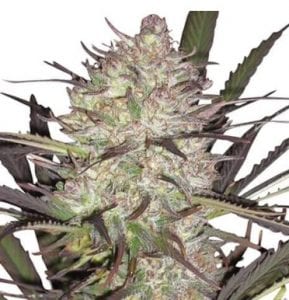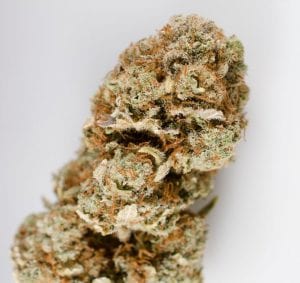With the adoption of medical marijuana on the rise, athletes should be aware that some varieties of cannabinoids substances are still prohibited in 2020. If an athlete is found with such substance in his/her system, they may face a lengthy ban. Explore this incredible article to learn how cannabis and sports in 2020 affect the athletes, sports communities, major leagues, rules of usage, and drug tests. Also, explore how marijuana can alter an athlete’s performance and recovery.

If you’re an athlete or play any sport, you understand that you need to be mindful of the things you consume and their physical effects. You may not even be authorized to do any psychoactive drugs due to periodic drug tests. Some substances are banned due to the boost they may provide athletes in sports.
Many athletes have discovered that cannabis provides benefits for intensity, execution, and healing. Countless athletes have used cannabis, and unfortunately, some suffer a ban as a result. Despite the contrary perception from sports leagues, this medicinal herb has proven quite beneficial to many athletes.
Regardless of the nature of the sport, high-level players in sports such as football, basketball, baseball, and martial arts have endorsed its effectiveness but don’t owe their professions.
Athletes have utilized cannabis to overcome anxiety to enhance focus, use it to get a good sleep before a big game or for pain alleviation sustained from an injury. Cannabis certainly has its spot in sports.
Why is cannabis restricted in professional sports?
Contents
The calls to allow medical marijuana in sports are becoming stronger. At present, MMJ cardholders, who contest, must avoid the drug. If you test positive for THC or THC metabolites, you will get a boycott. The World Anti-Doping Agency (WADA) identifies marijuana, and different cannabinoids, as restricted substances in competition. While it as of late expelled CBD, but THC remains in the prohibited list.
Curiously, the THC threshold from WADA is many times higher than the standard worker drug screening. At the point when you experience a urinalysis at work, 50ng/ml is the breaking point. Nevertheless, WADA permits a constraint of up to 150ng/ml.
It offers space to individuals who use MMJ or recreational cannabis. In any case, you should quit utilizing it weeks before the competition. Additionally, cannabinoids, for example, CBN, CBG, and CBC are prohibited by WADA.
Pro athletics conducts testing for restricted substances for a large number of reasons. They need to cover themselves against conceivable negative ramifications for the person’s and others’ wellbeing and safety. Drug testing likewise ensures a team’s interests in a player.
Conflict in ‘cannabis and sports’ makes a headline if any of the players test positive for the drug test. The team is quickly constrained to train their player and maybe even end their agreement. The league’s sponsors could even take steps to pull back their money to secure their reputation. Likewise, sportspeople who consume cannabis may miss practice games or perform poorly than their potential ability.
Which type of cannabis is banned?
The World Anti-Doping Agency (WADA) sets out a rundown of the disallowed substances that they don’t permit. They implement specific rules for prohibition, such as 12 hours before competition, through the game’s completion, till a test sample is collected.
Segment 8 expresses that both natural and manufactured cannabinoids, including THC, are disallowed in-competition as it were. The first particular case is CBD, which athletes are allowed to use whenever they want.
It is crucial to consider that unlike other restricted cannabinoids, the THC level must arrive at a specific edge to return a positive test result. A positive test additionally goes by the title an Adverse Analytical Finding or ‘AAF.’ The THC threshold of returning an AAF is 150ng/mm of urine.
Why are cannabinoids banned?
All banned substances meet two of the three following rules:
- The use of the substance has the power to intensify performance.
- The use of the substance may harm the health of the athlete.
- Spoiling the excellent spirit of sports by using the substance.
Why professional athletes use marijuana?
Professional athletes are always striving to enhance their performance. In their crusade to achieve the speediest time, the longest leap, or the fastest recovery, athletes blend different nutrients and enhancers into their everyday regimen. Whether trying a new pain relief lotion or eating fresh foods, athletes always seek new ideas.
As the stigma around cannabis began to relax and governments around the world accepted it as a therapeutic agent, many athletes decided to test cannabis’s health benefits.
Athletes involved in basketball, football, weightlifting, bodybuilding, boxing, jiu-jitsu, martial arts, or marathon have sworn by the effectiveness of cannabis for enhancing their physical and mental strength.
Cannabis: A secret revolution in sports
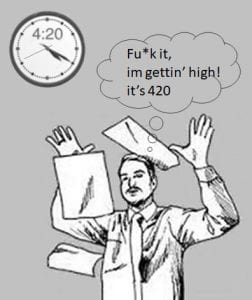 There’s a revolution propelling in the world of sports. You may not see any advertisements or promotions of this revolution on television. You won’t get to read about it in your daily newspaper too, but it’s happening RIGHT NOW.
There’s a revolution propelling in the world of sports. You may not see any advertisements or promotions of this revolution on television. You won’t get to read about it in your daily newspaper too, but it’s happening RIGHT NOW.
Professional athletes around the world are adapting cannabis and cannabis-based products to enhance their performance. Now, you might wonder why this would be revolutionary. Continue reading more interesting facts and figures on cannabis and sports that will surprise you.
Cannabis regulations in sports
An anti-doping agency always looks for up-to-date regulations for the use of cannabis in sporting organizations. Our findings explained that cannabis regulations differ widely among sporting clubs, as described in the below image.
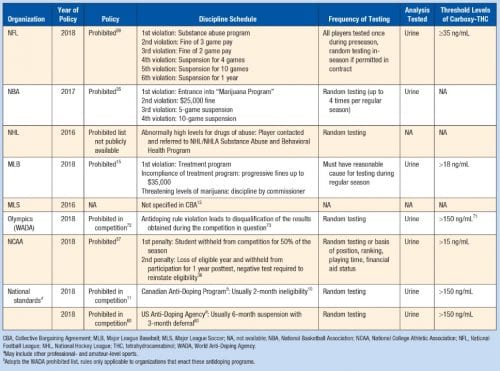
THC is metabolized into carboxy-THC and discharged with the urine. The most common method of testing cannabis use in players is through urinalysis.
How can players reduce the risk of a doping violation?
Likewise, with every single controlled substance, athletes can maintain a strategic measure from violation by going without cannabis during their athletic professions. Besides abstinence, it is impossible to avoid the chance of violation. However, athletes might have the option to lessen their hazard with the accompanying activities:
- Take medical alternatives instead of medical marijuana.
- Ensure that utilization is at least 30 days before the beginning of a competition period.
- If medical marijuana is a primary treatment for you, demand for a medical exemption.
- Make sure that non-medical utilization isn’t consistent or severe.
- Ensure that utilization is outside of a contest period.
Clearance times and the THC concentration may differ from individual to individual, so this method of stopping an anti-doping violation is not guaranteed.
What happens when an athlete is tested positive?
Cannabis is a particularized substance that takes into consideration a more significant decrease in approval than non-particularized substances. Thus, the beginning stage for the duration of the ban is at least two years.
If a panel verifies that an athlete realized that a CBD item contained another prohibited cannabinoid, or realized that there was a significant hazard, they could stretch out the boycott as long as four years.
Legalization in Canada: How does it affect athletes?
With the Government of Canada’s transition to legitimize cannabis, it is fundamental to recall that the status of cannabis in sports for athletes subject to the Canadian Anti-Doping Program (CADP) has not changed. Cannabis keeps on being a disallowed substance, and a positive test can at the present outcome in a punishment.
The CADP sticks to WADA’s Prohibited List, a worldwide norm under the World Anti-Doping Code. In this way, regardless of Canada’s situation on cannabis, the worldwide anti-doping network has put cannabis on the prohibited list.
Moreover, cannabis is only one of the numerous legitimate substances in Canada, yet disallowed in sport. One particular case of this is cannabidiol (CBD). CBD oil is a non-psychoactive element of cannabis, expelled from WADA’s prohibited list in 2018.
As it may, athletes should practice caution because CBD oil frequently contains some concentration of the restricted substance tetrahydrocannabinol (THC). In this way, the utilization of CBD oil is at an athlete’s risk.
The Canadian Center for Ethics in Sport has assembled a few assets to help guardians, mentors, and athletes explore the utilization of cannabis in sport. Furthermore, for a comprehensive list, please refer to the CCES Cannabis in Sports web page.
The threshold of cannabis concentration
The threshold means that if cannabinoids are there in an athlete’s sample below a specific concentration, they will not report it, and it will be free from a violation.
This threshold doesn’t mean to permit frequent, routine, or in-competition practice. Despite the threshold value, positive tests for marijuana are still many in many instances.
What is ‘legal marijuana’ in sports?
Athletes ought to consistently work with their doctors to investigate non-precluded options in contrast to restricted prescriptions. Where no option is accessible, or a doctor verifies that cannabis or a cannabis product is the most suitable treatment, athletes should appeal for a medical exception.
Allude to the Medical Exemption Wizard to decide your prerequisites. Athletes ought to know that there is no assurance that they will get a medical exception.
Why should marijuana be permitted in sports?
A significant part of the above is feasible if we evacuate the ‘stigma’ of cannabis use. An expanding level of examination proposes that weed can help with recuperation and pain. Without a doubt, that is a positive thing. It appears odd that marijuana use in sports is illicit, yet some athletes utilize some cannabis products.
Narcotic addiction causes over 100 deaths each day in the USA. Makers, for example, Purdue Pharma, have paid out millions of dollars for settlements. Unfortunately, narcotic usage impacts sports in many ways.
In the United States, specifically, student-athletes are feeling the influence. For the most gifted students, they know there is a chance of obtaining a school grant. The best one could even land a job one day. Hence, young sportspeople should figure out how to control the usage of cannabis as painkillers.
The study distributed in the American Journal of Public Health in 2013, took a gander at the non-medical utilization of narcotic prescriptions among youths. The experts found that athletes in high-injury sports like wrestling and football had a half higher possibility of utilizing narcotics for non-medical reasons.
Indeed, even proficient athletes get restricted insurance choices. It can likewise drive them into the dangerous arms of narcotics. Beam Lucas, a previous NFL quarterback, sketched out the issue. He said you receive insurance for five years in the organization, and then you are all alone.
As opposed to paying $400,000 for a medical procedure to fix his harmed neck, Lucas began utilizing professionally prescribed medicine. He started with 125 pills a month yet wound up taking 1,400 at the tallness of his compulsion. Permitting marijuana use in pro athletics would, in any event, give athletes an option to opiates.
How cannabis alter performance in sports?
One of the exhausting inquiries identifies with how marijuana impacts sports performance. There are different sides to the coin. Rivals of cannabis guarantee that it hurts performance. Here is a quick outline of these unfavorable impacts.
- Pulse increment and lessen heart stroke volume. This procedure will probably decrease the top performance.
- Decrease maximal exercise limits bringing about progressively significant weakness.
- Cause tachycardia; it includes a rapid heartbeat. If you have a go at practicing, you could drive your pulse to a dangerous level.
- Harm your lungs while smoking.
- Hinder sweating and your body’s capacity to control the temperature.
- Result in more slow response time, deftness, and coordination. You could experience the ill effects of these impacts for as long as 36 hours after use.
- Cause issues in critical thinking. It is a significant issue if your sport includes the call for a quick strategy.
In any case, the most unsafe marijuana impacts in sports happen when you use it before an action. It additionally appears as though smoking isn’t especially useful. Most athletes that attempt weed do as such after contesting; however, some utilize a limited quantity in advance.
Benefits of cannabis in recovery in sports
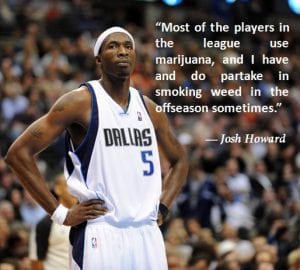 Those involved in extreme endurance competitions occasionally like consume THC before starting on their quest. As long as you abstain from getting stoned, you may find that the relaxing effects help you feel better. In theory, this would also benefit athletes before a big match.
Those involved in extreme endurance competitions occasionally like consume THC before starting on their quest. As long as you abstain from getting stoned, you may find that the relaxing effects help you feel better. In theory, this would also benefit athletes before a big match.
The principle benefits seem to include a decrease in post-practice aggravation and pain. The calming properties of cannabis could help accelerate the recovery procedure for harmed athletes.
It could likewise help the individuals who just have a couple of days to prepare for their next game. Moreover, the potential advantages of weed in the pro tournament include:
- Diminishing irritation and accelerating recovery time
- Lessening the degree of post-practice pain
- Assisting with uneasiness and stress
- Rewarding muscle spasms
- Improve sleep for better relaxation
- Boosting mental keenness
The last point is a fascinating one, as it declines what foes of marijuana imply. An examination by Bilkei-Gorzo, distributed in Nature Medicine in June 2017, found that customary low portions of THC reestablished psychological capacity in mice. Likewise, a significant number of athletes guarantee that weed encourages them to improve focus while they train.
Biggest cannabis advocates in sports
 Many pro athletes advocate for marijuana legalization to assist with pain control and psychological advantages.
Many pro athletes advocate for marijuana legalization to assist with pain control and psychological advantages.
Not long ago, whenever trained athletes tinkered with cannabis, it was shocking news that leads to suspensions, endless stoner jokes, and ruined careers. However, it’s not the case anymore. Just look at the Sports Illustrated, which furnished its cover story to former NFL football running back Ricky Williams’ association with cannabis.
Repeated suspensions listed Williams’ 11 NFL seasons for positive drug tests, forced contrition, and hand-wringing. The big news is that Williams has become a frank marijuana advocate. Later, he became the co-founder of the Power Plant Wellness, the world’s first cannabis-friendly gym.
How long does it take to wash out THC from your system?
There is no easy explanation for this flush out. Different cannabis strains have complex concentrations of THC and such other psychoactive elements. It implies that using the same amount of various strains can result in varying effects. Therefore, a drug test may detect different concentrations and clearance times.
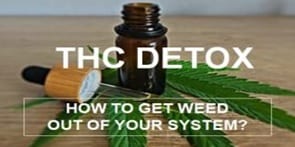 Read more on how to flush weed out of your system using THC detox and other natural techniques.
Read more on how to flush weed out of your system using THC detox and other natural techniques.
THC is fat-soluble that is stored in the body for an extended period, and it releases slowly. It does not get released consistently, but it all depends on an individual’s metabolism. Conclusively, the regularity of use is another factor to consider. Regular cannabis users might have longer clearance times than occasional users.
Have you heard about “The 420 Games”?
The ‘420 Games‘ is like the Olympics for stoners! There’s a unique event in the USA that’s been organized since 2016 called the 420 games. This event is for athletes who are also cannabis lovers. They hold many sporting events along with educational talks, cannabis twists, and live music!
Interestingly, they also have a 4.20-mile running track, a beer garden, and various paraphernalia stands to portray interests in various sports.
Jim McAlpine created this event to educate people on responsible cannabis use. In an attempt to show people that sports and cannabis can co-exist and that not all pot smokers are lazy, cannabis users can have an active, energetic life.
Future directions of cannabis in sports
If athletes and cannabis advocates can shift the perception of cannabis, more people in the sports industry understand its benefits. Consequently, this is the market that could explode in no time. However, there’s an accustomed problem of ‘perception’ among people.
Thus, it will take some time, effort, and money to change the public’s perception of cannabis in health, fitness, and sports. We hope that it will most likely find its way soon. The current research is lacking in conclusion for the influence of cannabis on athletes’ performance.
The dosage, power, and impacts of cannabis must be defined to form the sport’s proper regulations. The organizations also need more firm conclusions on the direction of research on cannabis and its pain control properties.
Due to the limited study on the short- and long-term effects, it is proper for student-athletes to practice caution when using cannabis while playing athletically. We need to get every decision-maker on the same table on some bigger stage to correspond to the regulations and rules so that they’re indisputable.
Marketing tie-ups between cannabis companies and professional players
Established cannabis companies are stirring their focus on the sports niche. Dixie Elixirs offers its products for athletes, which arrive in various applications, including bath soaks, lotions, balms, and more. These products are proper for muscle soreness and joint strain.
They’re getting publicity as more natural and less harmful to the body than OTC (over-the-counter) products like NSAIDs (such as Aleve, Ibuprofen, and Advil) ointments like Tiger Balm and Icy Hot.
Moreover, High Performance Beverage Co. declared that it would enter the cannabis business with a line of high-performance sports drinks with THC and CBD. The company partnered with CaliPharms to guarantee that they appropriately test its sports drinks to keep the products natural and organic.
Later, Tilray started an agreement to provide CBD products for wellness products backed by retired pro golfer Greg Norman. Canopy Growth obtained a 72% stake in BioSteel Sports Nutrition with a course to full ownership.
BioSteel delivers sports proteins and hydration mixes previously used by professional athletes, so it’s safe to consider the acquisition paving the way for the company to produce CBD-infused sports drinks.
Professional athletes entering the marijuana industry
In recent years, well-known athletes have joined the cannabis industries after realizing how active THC and CBD are for rehabilitation and pain control.
- CBD recovery products company Mendi sponsors Megan Rapinoe, an Olympic gold medalist, two time Women’s World Cup champion, and 2019 FIFA Women’s World Player of the Year.
- Four-time NBA champion John Salley became the vice president of marketing for Leading Edge Pharmaceuticals and soon began his own cannabis company, Deuces 22.
- The e-commerce cannabis delivery platform, Dutchie, obtained capital from Thirty Five Ventures, an investment firm co-founded by NBA star Kevin Durant.
- The NBA’s Al Harrington started his company, Viola Extracts.
- Former NFL player Kyle Turley holds the product line called Neuro XPF.
- Former NFL Pro Bowl player Lofa Tatupu started ZoneIn CBD.
- NFL legend Joe Montana invested in Caliva.
- Former NFL star Rob Gronkowski launched a line of CBD products with Abacus Health Products and CBDMedic.
- Retired NBA star Jamal Mashburn joined as an advisor in Revolution Global, a cannabis health and wellness company.
- Harmonizing the right product to the athlete is an essential part. Power Plant Fitness Gym does the same. Former NFL player Ricky Williams and founder of the 420 Games, Jim Alpine, started a gym to educate athletes and gym enthusiasts who desire to use cannabis. It’s an integral part of Williams’ and Alpine’s Cannathlete program and product line.
- Seibo Shen, a jiu-jitsu fighter, established VapeXhale.
- NBA star Cliff Robinson started a brand, Uncle Cliffy.
- Six-time Olympic gold medal-winning swimmer Amy Van Dyken joined with a hemp lifestyle network, Kannaway.
- Ultra-marathoner Avery Collins tied up with the Farm Marijuana Dispensary.
The number of professional athletes promoting cannabis increases. The list is endless; furthermore, you can read more about the athletes who advocate for the use of cannabis in sports.
Weed Strains Named After Athletes
Cannabis growers love naming distinct strains after notable people, and that includes athletes too. Some rabid sports fans reside in some of the weed plant’s breeding hot spots in Denver and Southern California, so why not identify an uplifting Kush or mouth-watering OG after some of our beloved players? There are ten strains named after celebrated athletes and sports teams.
- Michael Phelps OG (America’s most decorated Olympian swimmer Michael Fred Phelps)
- Tiger Woods (American golfer Eldrick Tont “Tiger” Woods)
- Black Mamba (NBA legend Kobe Bean Bryant)
- Beastmode OG (American footballer Marshawn Terrell Lynch)
- Mike Tyson OG (American boxer Michael Gerard Tyson)
- Gary Payton (NBA Hall of Famer Gary Dwayne Payton)
- Peyton Manning (American football quarterback Peyton Williams Manning)
- Richard Sherman OG (American footballer Richard Kevin Sherman)
- Larry Bird Kush or Gelato #33 (Boston Celtics basketball player Larry Joe Bird)
- Orange Crush (Denver Broncos American football franchise)
Best Cannabis Strains for workouts and post-recovery
There’s no easy way to exercise other than sweating it out. Nevertheless, cannabis CAN BE your partner in good health. Here are some fantastic cannabis strains that can help you fight fatigue and boost energy with your workout sessions.
1 – Green Crack from ILGM
Green Crack is another coffee-replacement cannabis that is a staple for daytime medicating. This Sativa-dominant strain is almost unparalleled in its energy-boosting effects. If you’re sleep-denied or uninspired, the mind-sharpening effects of Green Crack offer a creativity launch.
It’s also a brilliant strain for those experiencing the energy-sapping effects of depression by giving users bursts of happiness with a mango flavor profile and sharp-citrus aroma. If all that isn’t good enough, even the Snoop Dogg shoutout for this weed strain.
2 – Durban Poison from ILGM
Arising in the port city of Durban, South Africa, Durban Poison has consistently achieved reputation across the globe since the late 1970s.
It’s sugary to the aroma with an earthy flavor with a bit of pine. The fragrance comes from the prevailing taste, delivering terpene D-Limonene that is a terpene that usually resides in citrus fruits. It causes the prevailing more honeyed smells. This Saiva-dominant cannabis strain contains THC content between 16-25%. Moreover, it has 0.02% of low CBD content.
Many faithful Durban Poison users stated the weed offers release from stress, worry, pain, tiredness, and headaches. The most ordinarily described side effects are generally moderate, including dry mouth and dry eyes. Some users also claim that the strain alleviates headaches, while others have stated experiencing a headache. Thus, everyone feels differently, and balance is the key to uncovering the appropriate effect.
3 – Harlequin from ILGM
This dominant hybrid is a great smoke when you are looking to find some psychological release, without feeling exhausted. Harlequin has received all its positive results from its origin. This strain is a remarkable relaxant, with an ability to quiet the mind and stay focused.
Harlequin is uplifting and a happiness-inducing weed. This Sativa-dominant cannabis will let you keep your productivity at 100 percent. It means that it’s the ideal smoke to start a day with, because instead of slowing you down, this strain may assist you with getting stuff done, and get it done while feeling inspired and creative.
Harlequin is excellent at keeping you focused and will let make them complete your usual tasks with more exactness and vigor.
Q1 – Can cannabis help in endurance at the time of exercise? A1 – This is a tough one to answer. However, some methods to consider for yourself, since everybody responds to marijuana and its side effects entirely differently. It mostly depends on the dosage, strain, and tolerance. Q2 – Which is the best marijuana product to help with pain and sleep in tendinitis (golfer’s elbow) without getting high? A2 – A topical CBD salve, lotion, cream, or balm should be applied directly on the elbow skin; there is no high associated with CBD topicals. You could also try a time-release patch. Another option would be a 20:1 CBD-THC tincture, on or under the tongue, and it can provide three to five hours of relief. Q3 – Which cannabis product is better for the treatment of lactic acid in muscles after a workout? A3 – cannabis topical with a high THCA content would be an excellent option since THCA is one of the most active cannabinoids for reducing inflammation.Frequently Asked Questions (FAQs)
Final Verdict
While many regard pot as a drug for couch-locked stoners, marijuana has proven advantageous for many athletes. Sadly, almost all sports have prevented the adoption of marijuana except for the NHL.
Overall, nearly 1 in 4 athletes recorded using weed in the past year, but the report may not have accurate data. The usage of cannabis has no advantage or damage to athletic performance, as shown in the available report.
Moreover, there is no proof assessing the influence of cannabis on recovery. Current laws in sports point that most organizations have banned cannabis, but discipline programs and THC in urine levels vary for different cases.
As the legal aspect and acceptability of marijuana use are shifting, we need more research to describe its actual impacts on performance and recovery and to supervise its administration in athletics.
Above all, if you’re new to marijuana and need to discover more insightful details, take a glance at 420ExpertAdviser to explore some of the most amazing articles on cannabis strains, seedbanks, growing guides, medical condition benefits, legality, and cannabis innovation. We believe this blog helps you pick the best marijuana strain and the best seed bank for your needs.
At last, enjoy some of the most hilarious NBA ‘High’ moments. It’s going to be fun!
Reference
- wit.edu
- usada.org
- adai.uw.edu
- Hightimes.com
- americanbar.org
Disclaimer Content on this guide is intended strictly for informational purposes. We do not promote any product or represent that the products mentioned in this article are a treatment for any medical condition. Furthermore, we cannot guarantee that information furnished is error-free or perfect and is not liable for users’ actions. We do not endorse any user reported information, any particular strain, product, producer, organisation treatment, or therapy. We do not make representations regarding the use of cannabis and do not provide any of its views on the usage, benefits, or promotions.


